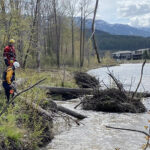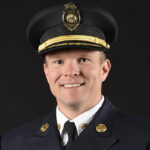Home »

Details emerging about would-be Jumbo municipality
Regional District of East Kootenay (RDEK) directors have learned of some details surrounding the creation of the would-be Jumbo Glacier Resort municipality.
RDEK chief administrative officer Lee-Ann Crane Sept. 7 outlined 18 items related to the establishment of a resort municipality in the upper Jumbo Creek Valley, 55 km west of Invermere in the Purcell Mountains.
When the B.C. Government signed off on the proposed $1 billion (estimated) ski resort, an issue that is now older than most basic degree earners (23/24 years), it opened the door for the creation of a mountain resort municipality, which would handle all infrastructure and development issues related to the Master Development Agreement covering the Crown land-leased resort area.
Crane said she and RDEK board chair, Electoral Area C director Rob Gay, met with staff from the Ministry of Community, Sport and Cultural Development: Julian Paine, Assistant Deputy Minister and Inspector of Municipalities; Gary Paget, Senior Advisor, Local Government Division; Kara Woodward, Manager, Policy and Legislation on July 10, and presented information on 18 areas of governance.
The following are the items presented to the board by Crane:
1. Name: it must include “mountain resort municipality.”
2. Boundaries: the boundaries will be the controlled recreation area as set by the Master Development Agreement. The outer boundary could shift.
3. Municipal Class: Will be classified as a village.
4. Date of commencement: The date of incorporation will be the official date of commencement.
5. Advisory Committee: A Resort Advisory Committee will be established to promote the interests of the resort. The ministry is more interested in an environmental advisory committee for Jumbo.
6. First Nations Advisory Body: A First Nations Advisory Body will be appointed to represent the interests of the Shuswap and Ktunaxa. The nature of the body will be a subject of discussion with the Ktunaxa (meeting was to take place on July 11). Mandatory consultation with First Nations will likely be required.
7. Size of council: When up and fully running, there will be a council of five. Initially there will be a council of three appointed by Cabinet to represent public interest in the resort. Ideally, the three members would be drawn from local communities. The provincial process for finding and appointing members must follow the mandated provincial process.
8. Make-up of council: It is not intended that there will be a developer representative appointed to the council. Appointments will likely be for three years. Members must fit criteria established in the provincial appointment process (e.g., good character).
9. Elections: The first election will be held when there is a “critical mass” of residents and non-residents who are eligible to vote in accordance with Local Government Act eligibility requirements.
10. First council meeting: Occurs upon incorporation – may be held at a location outside the boundaries of the mountain resort municipality.
11. Financial Plan: Must follow the same requirements for financial plans as all BC local governments.
12. Long term borrowing: Long term borrowing will not be permitted during the development phase to ensure the developer remains responsible for all development costs and associated borrowing.
13. Development cost recovery: Regular and employee housing development cost charges will be required.
14. Development permit areas: Development permit areas will be more “Whistler-like” in nature with the ability to “fine tune” things such as colour schemes, etc.
15. Official Community Plan: There will be a mandate to adopt an official community plan (OCP) within a set deadline, likely within the term of the first council. A public process and ministerial approval will be required. The OCP must be consistent with the Master Development Plan. The developer will be required to provide the funding for the OCP and other planning documents.
16. Services to be transferred from regional district to municipality: The mountain resort municipality will contribute to regional district services as a municipal participant. It will be very important to watch the assessment base to ensure the municipality is paying for services they receive. Subsequent to this meeting, the CAO forwarded a list of regional and sub-regional services in which the mountain resort municipality will be expected to participate.
17. Discontinuation of regional district bylaws: A review as to which regional district bylaws are to be discontinued and the timing of same will be reviewed in detail later.
18. Municipal voting at regional district board: At what point the municipality will have representation on the regional district board is yet to be determined. Possibly the representative “must be an elected official” which would mean waiting for a municipal election; however, this is yet to be determined.
“Chair Gay and I left the meeting with the understanding that there would definitely be more consultation with the RDEK in the future,” Crane told the board.
Gay said there was a lengthy discussion about the matter of a mayor and council that would eventually represent Jumbo, essentially a private business becoming a municipality.
“The developer will not be one of those folks,” Gay said.
However, before there are enough full-time residents to create a council of five elected officials, a council of three will be appointed by the B.C. Cabinet – but all three must be “local,” Gay said.
The now-standard regional board division, essentially created over the years of discussion and debate revolving around the one-time four season, and now three-season proposed ski resort, which would access glaciers on Jumbo Dome and nearby, once again bubbled to surface after Crane’s report.
“In my view, what you have listed is a template for B.C.’s newest Crown corporation,” said Electoral Area G director Gerry Wilkie.

“For me, this is still beyond comprehension. It’s such a wacky idea. I’d like to see firm numbers,” remarked District of Invermere Mayor Gerry Taft, adding such a municipal structure would be “a big philosophical switch” to how other RDEK jurisdictions operate.
Taft also scoffed at a council of five being created from a permanent population, noting no actual number was provided. “I’d like to see that magical number,” he said, adding he questioned how the initial appointed council of three could be “autonomous? It’s a banana republic – it’s ridiculous,” he spat.
Village of Canal Flats Mayor Ute Juras agreed with Taft. “How do you govern something that’s not there?” She asked. She also wondered how an OCP could be created without complete conflict of interest involved. “What public are you consulting with?”
Juras also said she is concerned about eventual RDEK board representation by the Jumbo resort municipality. “It could possibly happen that an appointed director” could end up sitting with elected officials and helping make decisions on a region-wide basis.
Electoral Area A director Mike Sosnowski said he liked what he heard from Crane.
“They know a lot more than we thought they did,” he said. “It is evidence the government is on our side – the public side. A huge question mark has been reduced considerably.”
City of Cranbrook councilor Bob Whetham, who retired as the RDEK’s head planner a few years ago, asked if consideration had been made about costs to the region to service the resort, 55 km from Invermere, the nearest (logging) road accessible municipality to Jumbo.
“It’s going to be a very expensive haul” picking up garbage, for example, he said.
Crane noted that wasn’t discussed July 10.
Electoral Area F director Wendy Booth, who would have had Jumbo in her bailiwick if the regional board hadn’t voted to send the resort governance back to the province in 2009, asked if a timeline had been presented.
Crane noted there had not been a timeline made available.
“They took our letter to heart. I got the sense they will be back many times,” Gay told the board, adding set up costs for the resort and a resort municipality will be borne by the developer.
“They are going to be very, very large – the road being one of them,” he said.
Ian Cobb/e-KNOW







